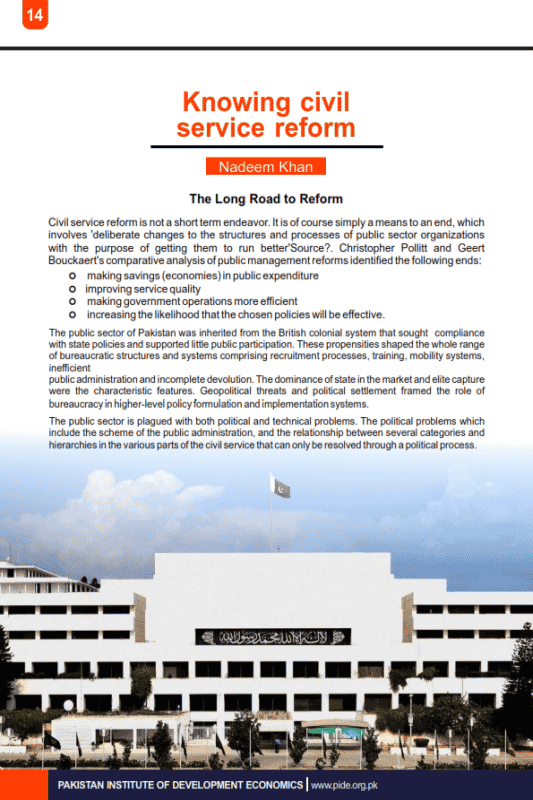
Pakistan Institute of Development Economics
- Home
Our Portals
MenuMenuMenuMenuMenuMenuMenu - ResearchMenuMenuMenuMenuMenuMenuMenu
- Discourse
- The PDR
- Our Researchers
- Academics
- Degree Verification
- Thesis Portal
- Our Portals
Knowing civil service reform
Civil service reform is not a short term endeavor. It is of course simply a means to an end, which involves ‘deliberate changes to the structures and processes of public sector organizations with the purpose of getting them to run better’Source?. Christopher Pollitt and Geert Bouckaert’s comparative analysis of public management reforms identified the following ends: making savings (economies) in public expenditure improving service quality making government operations more efficient increasing the likelihood that the chosen policies will be effective. The public sector of Pakistan was inherited from the British colonial system that sought compliance with state policies and supported little public participation. These propensities shaped the whole range of bureaucratic structures and systems comprising recruitment processes, training, mobility systems, inefficient public administration and incomplete devolution. The dominance of state in the market and elite capture were the characteristic features. Geopolitical threats and political settlement framed the role of bureaucracy in higher-level policy formulation and implementation systems. The public sector is plagued with both political and technical problems. The political problems which include the scheme of the public administration, and the relationship between several categories and hierarchies in the various parts of the civil service that can only be resolved through a political process.



